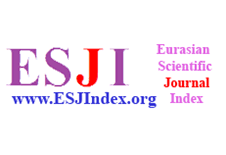Social networks of migrants from uzbekistan and their impact on adaptation in russia. (the article can explore the role of diasporas, regional communities, and other social networks in the adaptation process of migrants, as well as how these networks are
Khodjamkulova Madina
a second-year master's student at the Faculty of Psychology of the Tashkent Branch of Lomonosov Moscow State University.
Keywords: Migration, Uzbek migrants, social networks
Abstract
This article examines the impact of social networks on the adaptation of Uzbek migrants in Russian society. It explores various forms of social associations, such as diasporas, regional communities, professional and cultural organizations, and their role in supporting migrants. The study analyzes the mechanisms through which these networks operate and their influence on access to information, employment opportunities, housing conditions, and social integration. Special attention is given to how such communities help migrants overcome language barriers, maintain their cultural identity, and adjust to new living conditions. The article also discusses how social networks facilitate connections with their homeland and influence the formation of collective ethnic identity. The research is based on an analysis of existing social adaptation theories, interviews, observations, and statistical studies on migration processes.
References
1. Абашкин, В. В. (2020). Трудовая миграция в России: тенденции, проблемы и перспективы. Москва: Издательство МГУ.
2. Баранова, Е. А. (2019). Роль диаспор в социальной адаптации мигрантов в России. Вестник социологии, 4(12), 56-72.
3. Castles, S., & Miller, M. J. (2020). The Age of Migration: International Population Movements in the Modern World. New York: Palgrave Macmillan.
4. Ivakhnyuk, I. V. (2018). Migration in the Post-Soviet Space: Trends and Challenges. Journal of Migration Studies, 10(3), 44-61.
5. Латышева, А. Н., & Гончаров, П. И. (2021). Этнические общины как фактор интеграции мигрантов в России. Социологические исследования, 5(15), 89-102.
6. Малишев, К. В. (2017). Социальные сети мигрантов и их влияние на адаптацию в принимающих странах. Санкт-Петербург: Издательство СПбГУ.
7. Vertovec, S. (2019). Transnationalism and Migration: Concepts, Methods, and Applications. Oxford: Routledge.
8. Российский центр миграционных исследований (2022). Доклад о состоянии миграции в России. Доступно на: www.migrationrussia.ru
9. ФМС России (2023). Статистический отчет о миграционных потоках в РФ за 2022-2023 гг.. Москва: Федеральная миграционная служба.
10. International Organization for Migration (IOM). (2021). World Migration Report 2021. Geneva: IOM Publications.

















